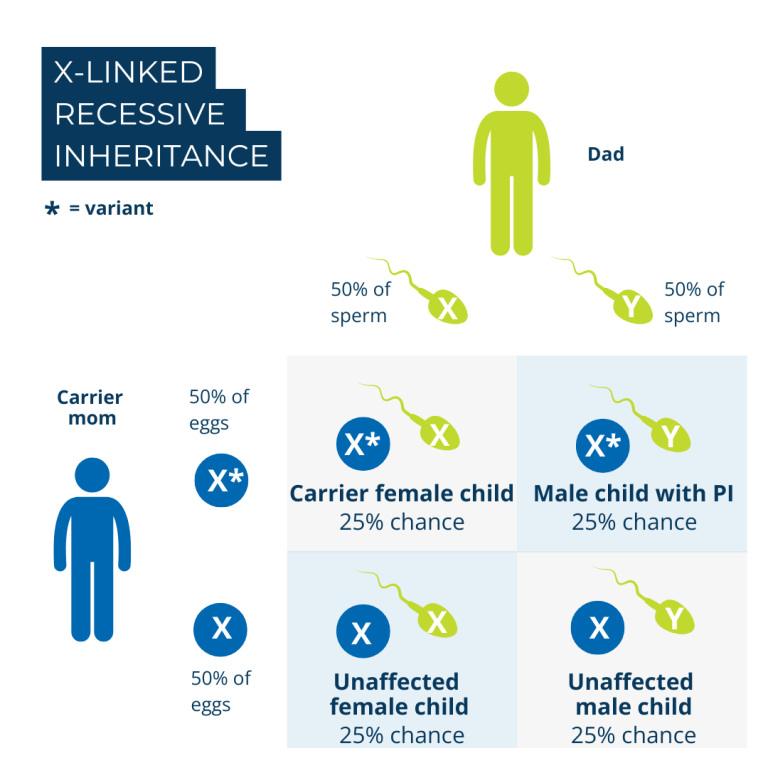
-
Understanding primary immunodeficiency (PI)

Understanding PI
The more you understand about primary immunodeficiency (PI), the better you can live with the disease or support others in your life with PI. Learn more about PI, including the various diagnoses and treatment options.
-
Living with PI
-
Addressing mental health
-
Explaining your diagnosis
- General care
- Get support
- For parents and guardians
-
Managing workplace issues
- Navigating insurance
-
Traveling safely

Living with PI
Living with primary immunodeficiency (PI) can be challenging, but you’re not alone—many people with PI lead full and active lives. With the right support and resources, you can, too.
-
Addressing mental health
-
Get involved

Get involved
Be a hero for those with PI. Change lives by promoting primary immunodeficiency (PI) awareness and taking action in your community through advocacy, donating, volunteering, or fundraising.
-
Advancing research and clinical care
-
Research Grant Program
-
Consulting immunologist
-
Diagnosing PI
-
Getting prior authorization
-
Clinician education
-
Survey research
-
Participating in clinical trials

Advancing research and clinical care
Whether you’re a clinician, researcher, or an individual with primary immunodeficiency (PI), IDF has resources to help you advance the field. Get details on surveys, grants, and clinical trials.
-
Research Grant Program
Traditionally thought to only carry the gene variant for X-linked chronic granulomatous disease (CGD) but not be affected by it, female carriers do indeed experience medical problems and should be monitored regularly by clinicians, according to a recently published study.
CGD is a rare, inherited primary immunodeficiency (PI) in which a person’s cells don’t produce the hydrogen peroxide and other chemicals needed to kill certain bacteria and fungi. People with CGD are at high risk for recurrent and severe infections of the skin, liver, lung, bone, and lymph nodes. They also experience the formation of small masses of white blood cells called granulomas, and high rates of inflammatory and autoimmune disease.

The most common form of CGD is X-linked (65 to 70% of cases), meaning the CGD-causing gene variant is on the X chromosome. People who are genetically male only have one X chromosome, so if they inherit the CGD-causing gene variant from their mothers, they are affected by the disease. However, their mothers, who carry the variant but usually have another X chromosome without the variant to compensate, are generally thought to be asymptomatic, or not affected by the disease. However, the recent study shows that X-linked CGD carriers also exhibit CGD symptoms to varying degrees.
The study, “High symptom burden in female X-linked chronic granulomatous disease carriers,” states that X-linked CGD carriers are an “underrecognized population” who suffer most commonly from autoimmune and inflammatory symptoms. The study also points out that X-linked CGD carriers report “an alarmingly high rate of psychiatric symptoms.”
The study is based on data collected through a survey developed by the CGD Project Working Team including the CGD Association of America (CGDAA) and the Primary Immune Deficiency Treatment Consortium (PIDTC). The 57-question self-reported survey queried 171 female X-linked CGD carriers between the ages of 15 and 85, representing mothers, daughters, grandmothers, sisters, aunts, and cousins of males with CGD. The study is the most extensive analysis of X-linked CGD carriers to date.
Close to half of the survey respondents shared they had health problems, with one quarter reporting that their illness impacted daily living activities, and one quarter indicating their poor health impacted employment.
Autoimmune and inflammatory diseases were common, and presented in the following areas:
- Dermatologic – 87%.
- Gastrointestinal – 79%.
- Musculoskeletal/neurologic – 60%.
- Rheumatologic/autoimmune – 59%.
The women coped with unusual infections, rashes caused by exposure to sunlight, sores in their mouths, lupus, chronic diarrhea, bowel disease, rheumatoid arthritis, and granulomas. Blood disorders were reported in 48% of the women, and lung disease in 27%.
Mental health issues proved a major challenge, according to the survey, with 91% of women reporting psychiatric symptoms such as anxiety, depression, panic attacks, and post-traumatic stress disorder (PTSD). Nearly half received counseling and/or medication.
“The cause of mental health symptoms is unclear although rates of depression and anxiety are known to be higher in caregiver populations and most respondents were mothers of sons with XL-CGD,” wrote the authors of the study.
The authors recommended that researchers continue to study the X-linked CGD carrier population and that the women receive regular care.
“Carriers of XL-CGD have traditionally been thought to be unaffected or minimally affected; however, this survey indicates that these females have a variety of symptoms and disease manifestations that may warrant monitoring,” according to the study.
“The authors recommend that all XL-CGD female carriers be followed by primary care providers, and at a minimum, every clinical visit include a review of systems with additional evaluation by appropriate specialists as needed.”
CGDAA Founder and Executive Director Felicia Morton helped provide survey respondents through CGDAA and co-authored the paper. She is the mother of a 13-year-old son with CGD treated with a bone marrow transplant at age 4.
Morton said she does not have CGD symptoms, but her mother struggled for years with dermatologic problems and poor wound healing due to being a carrier. She is now on prophylactic medication and healthy.
“Women in our community have been overlooked and it’s not just the fault of the medical community. X-linked carriers are so focused on taking care of their children and making sure their sons are healthy that they can ignore their own symptoms because they are so much less severe in many cases than their sons,” she said.
“But now, with the survey, we’re not only raising awareness among medical providers but we’re also hopefully empowering the women in our community to be proactive and talk to their doctors. We know that the most important thing for women, especially mothers, is to feel strong so that they can be strong within their families and communities.”
Read other newsletter articles
The IDF ADVOCATE is the national newsletter of the Immune Deficiency Foundation, published twice a year. Download or request a free print copy of the newest edition!
Read newsletterRelated resources
Sign up for updates from IDF
Receive news and helpful resources to your cell phone or inbox. You can change or cancel your subscription at any time.





The Immune Deficiency Foundation improves the diagnosis, treatment, and quality of life for every person affected by primary immunodeficiency.
We foster a community that is connected, engaged, and empowered through advocacy, education, and research.
Combined Charity Campaign | CFC# 66309




